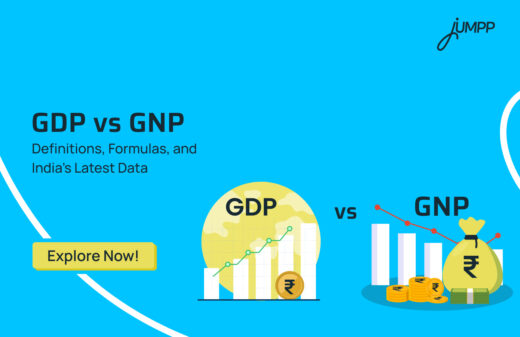Saving vs Investment: Choosing the Right Path for Your Money

India’s net household financial savings are projected to reach ₹22 lakh crore in FY25, or 6.5% of GNDI, according to SBI. This indicates that people are saving more, but it is not enough on its own to build long-term financial strength. Many still feel unsure about saving vs investing and how each supports different financial goals.
Understanding the difference between saving and investing, along with the benefits of saving and the benefits of investing, is essential for making informed money decisions.
Let us help you decide what works best for your goals.
What Do Most People Get Wrong About Saving vs Investment?
Most of us grow up believing that saving money is the safest and smartest way to build our future. While that is partly true. You need to understand that only saving will not help you grow your wealth. That is where we go wrong!
- Saving only parks your money, usually in a bank account or fixed deposit. It is safe, but the growth is slow.
- Investing helps your money grow and supports medium to long-term goals.
- Relying solely on savings can leave you behind, especially as prices rise each year.
For instance, if you save ₹5,000 monthly in a bank account, it grows slowly. But if you invest the same amount at even 10 per cent annually, the long-term value becomes far higher due to compounding.
Before planning your finances, ask yourself:
“Are you only saving or are you preparing to grow your money?”
Savings vs Investments: Key Differences
To see how saving vs investment differ across key factors, the table below offers a clear comparison.
| Basis | Savings | Investments |
| Meaning | Money set aside for future use or emergencies | Money is put into assets that can grow over time |
| Purpose | Safety and easy access | Wealth creation and long-term growth |
| Risk | Very low or none | Moderate to high, depending on the asset |
| Returns | Low and mostly fixed | Higher potential returns, not guaranteed |
| Examples | Savings account, FD, RD | Mutual funds, stocks, bonds, PPF, and real estate |
| Liquidity | Very high; money can be withdrawn anytime | Lower; some assets take time to convert to cash |
| Inflation Impact | May not keep up with rising prices | Can beat inflation over the long term |
| Discipline Needed | Basic habit of regular saving | Requires patience and long-term planning |
| Time Horizon | Short-term (0–2 years) | Medium to long-term (3+ years) |
| Best For | Emergencies, short-term needs | Long-term goals like wealth building, retirement |
Now, let us understand the real importance of saving and investments!
What is Saving?
Saving means setting aside a portion of your income for short-term needs, emergencies, and financial safety. It prioritises security and liquidity over returns.
Common ways people save in India:
- Savings account
- Fixed deposits (FD)
- Recurring deposits (RD)
- Cash-based savings or digital jars
Pros and Cons of Saving
Pros:
- Safety: Savings carry little to no risk since your money stays in secure accounts.
- High liquidity: You can access your money quickly during emergencies or short-term needs.
- Simple to manage: No market knowledge or tracking is required.
- Ideal for short-term goals: Useful for upcoming expenses like travel, gadgets, or medical needs.
Cons:
- Low returns: Savings accounts and fixed deposits offer limited growth.
- Inflation impact: Returns often do not keep up with rising prices, reducing purchasing power over time.
- Limited wealth creation: Saving alone cannot help achieve larger goals like retirement or long-term growth.
- Can slow financial progress: Relying only on savings may prevent you from building assets or growing wealth effectively.
What is Investment?
Investment means allocating your money into assets that can increase in value over time, offering the potential for higher returns than basic savings.
Unlike saving, investing involves some degree of risk, but it also opens the door to long-term wealth creation.
Common Ways People Invest in India
- Mutual Fund SIP
- PPF or NPS
- Stock Market
- Gold Bonds
- Real Estate
Investments give your money the chance to grow, support long-term goals, and create financial progress beyond basic saving.
Pros and Cons of Investing
Pros
- Higher return potential: Investments can grow your money faster than traditional savings options.
- Beats inflation: Long-term returns often outpace rising prices, preserving and increasing purchasing power.
- Wealth creation: Helps you build assets and achieve major financial goals such as retirement, education, or property.
- Compounding benefits: Staying invested for longer periods accelerates growth through compounding.
Cons
- Market risk: Investment value can fluctuate due to market conditions.
- Requires patience: Wealth creation takes time, and short-term volatility is common.
- Lower liquidity: Some investments cannot be withdrawn immediately without penalties.
- Knowledge needed: Choosing the right investment options may require research or guidance.
Should You Save First or Start Investing First?
You should save first, build a basic safety cushion, and then start investing for long-term growth. Saving gives you stability; investing helps your money grow.
Why Saving Comes First
- Saving protects you during emergencies.
- It makes investing less stressful and reduces the fear of losing money.
- A buffer helps you stay invested longer without panic withdrawals.
Not sure how to balance saving and investing? Try the 50/30/20 rule of budgeting—a simple method that helps you manage spending while building your savings smartly.
Conclusion
Both saving and investing play essential roles in building a stable financial future. Saving helps you stay prepared for emergencies and short-term needs, while investing helps your money grow and support long-term goals. To manage your money more efficiently, consider using the best savings app. It can help you track expenses, stay disciplined, and build stronger financial habits over time.
Saving vs Investments: FAQs
Saving means setting aside money for safety and emergencies. Investment means using that money to grow it through assets like mutual funds or stocks.
Spend 50% on needs, 30% on wants, and save or invest the remaining 20% of your income.
Investment is not the same as saving. Saving builds a safety net, while investing helps your money grow over time.
Your money stays safe but may not grow much. Inflation can reduce its real value if you do not invest.
First, build an emergency fund through savings, then start investing for long-term goals.
Save for short-term needs and emergencies. Invest for long-term growth and wealth creation.
A savings plan offers safety and low returns. An investment plan aims for higher returns but comes with some risk.
Saving provides financial security, quick access to money, and protection during emergencies.
Investment helps your money grow, beat inflation, and build long-term wealth.






